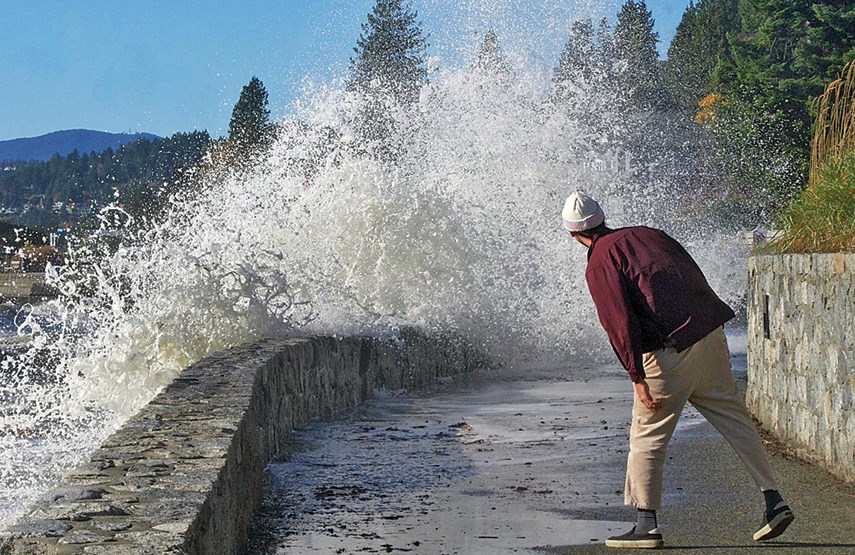West Vancouver council is moving ahead with a suite of strategies aimed at cutting back the carbon emissions emanating from the municipality.
Staff began drawing up a list of actions for council to consider for the official community plan, zoning bylaw and building bylaw after a unanimous vote to declare a climate emergency in July 2019.
West Vancouver now has the same carbon reduction targets as the Intergovernmental Panel on Climate Change enshrined in its OCP – 45 per cent below 2010 levels by 2030 and 100 per cent by 2050 or sooner. Previously, the goal was only a 40 per cent reduction by 2040 and 50 per cent by 2050.
Many of the changes relate to transportation and tailpipes. All parking stalls in new multi-family buildings must be outfitted with outlets capable of Level 2 electric vehicle charging and all new single-family and duplex homes must have an EV charging space.
New single-family homes and duplex units will only be required to have one parking space and the requirement for more spaces for secondary suites and duplexes could be waived if within 400 metres of a transit stop.
For multi-family buildings, the new minimum parking requirement will be one space per unit or per 84 square metres of residential space, whichever is the lesser.
New condos and apartments must have 1.5 secure bicycle stores spaces per unit and 0.2 short-term bicycle lockups. All commercial buildings will be required to have 0.3 secure and 0.4 short-term bicycle storage spaces for every 100 square metres of floor space.
Starting in March 2021, building permits will require new homes to have either low-carbon energy systems like heat pumps or be net-zero energy ready, the top stop in B.C.’s energy step code.
And when council considers rezonings to allow densification, proximity to transit and the use of low-carbon construction will be among the official criteria to consider.
The district is also seeking to be included in the province’s Tall Wood Early Adoption Initiative, to allow mass timber structures of seven to 12 storeys in height, and the province’s CleanBC Better Homes Program, which offers homeowners financial incentives to switch to convert from oil and gas heating to electric heat pumps.
When it came time for a vote, council’s support was unanimous. Only Coun. Nora Gambioli chose to speak, though.
“These changes to our bylaws don’t cost anything – thank god – so they are being supported,” she said.
(Earlier in the meeting, Gambioli was one of the dissenters on a vote to scale back the annual climate response levy.)
“This is very, very significant. Our staff have told us that if we pass these bylaws, we will be leaders amongst the municipalities in the Lower Mainland on these issues. This is very significant and exciting and I feel very proud that we are at this stage,” she said. “I am really proud of residents who have compelled us to come this far and who have written to us and come out and spoken for the last eight or nine months on the topic of a climate emergency.”
The vote followed a public hearing in which several members of the public turned out, asking council to proceed with the changes.
Boyer Island resident Eoin Finn praised council for their climate emergency declaration and for targeting building heating systems, which currently account for 17 per cent of B.C.’s emissions.
“I’m delighted to see West Vancouver living up to what is necessary for us to do if we are to have a sustainable planet to live in,” he said. “We need to decarbonize the economy and that starts at home with the effort to change these bylaws to adopt a more decarbonized approach to heating our buildings.”
The bylaws must pass one final vote of council on March 9 before they are formally adopted.



